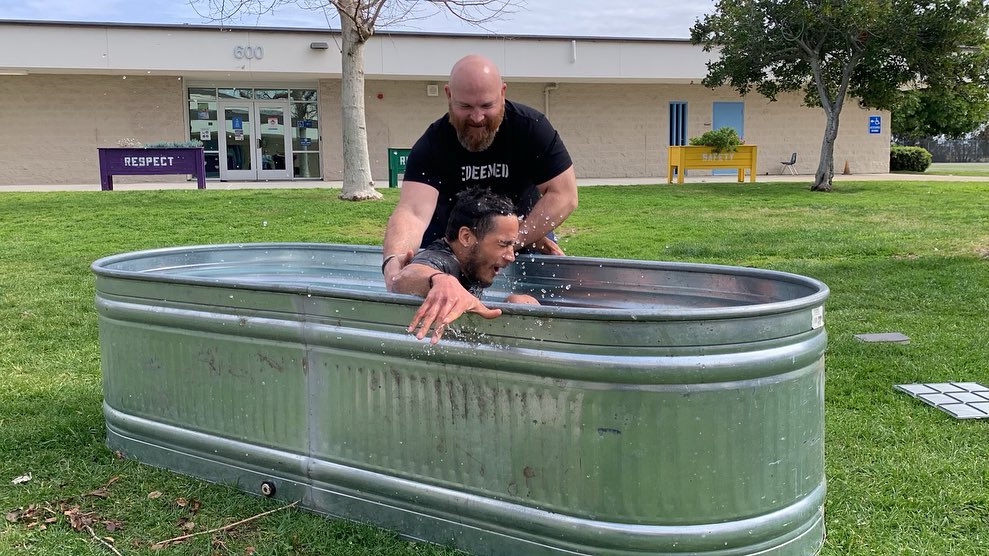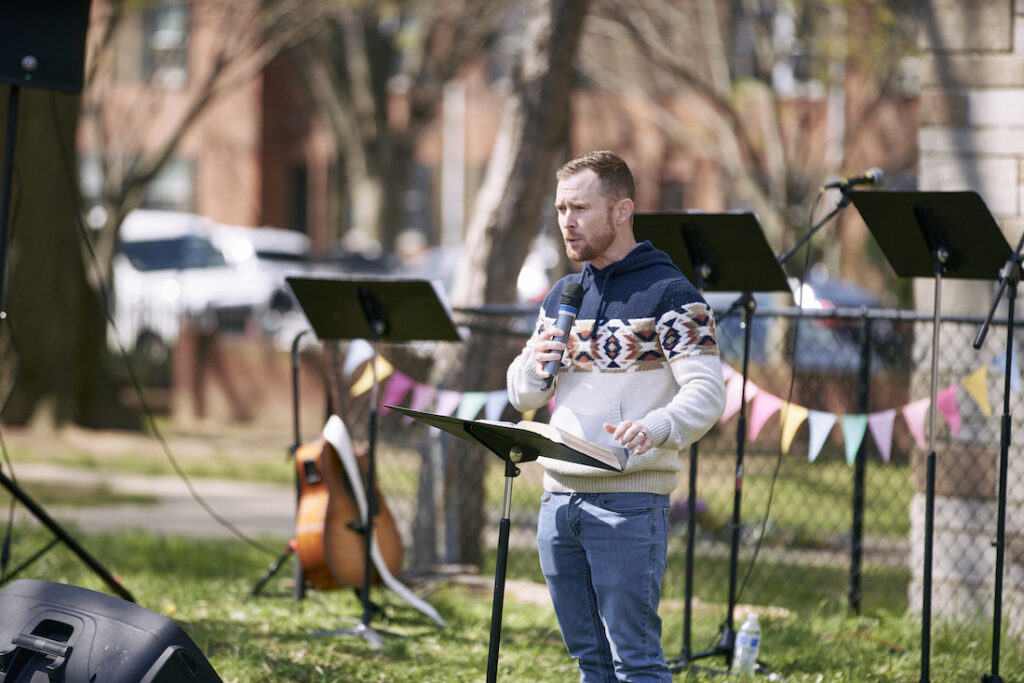By Dhati Lewis
The past few weeks have been brutal.
Our communities across the nation are grieving the deaths of Ahmaud Arbery, Breonna Taylor and George Floyd. The Christian community is grieving the losses of Darrin Patrick and Ravi Zacharias. Add these losses to the others I know we are each experiencing because of the pandemic, and the grief can seem insurmountable.
Because we live in a broken world, grieving is a part of living. If we want to live a full life, we have to grieve well. We need to grieve corporately just as much as we need to grieve individually.
Grieving well is the pathway toward healing. But I find we often don’t grieve well because we buy into myths our culture has told us about sadness.
Here are three common myths about sadness we are tempted to believe. As you read them, I encourage you to embrace the truth and engage the journey of grieving in this season.
Myth #1: The pain will go away faster if you ignore it.
Have you ever heard these sayings? “Don’t cry over spilled milk.” “Suck it up.” “Get over it.” “It’s no big deal, just water under a bridge.”
These are phrases we hear often when it relates to dealing with sadness. Even though we say it’s just water under a bridge, our hearts know better. Have you ever stopped to wonder where all that water under the bridge goes? It goes to a dam. And if the water keeps building, the dam will break, and we will be forced to deal with the floods that follow. Ignoring our sadness won’t make it go away faster. Sooner or later, we have to face it.
Honoring our sadness, however, means we get off the proverbial bridge and trace where the water actually goes. What started as sadness may lead you to anger, which may lead you to fear, which may lead you to another emotion and then another. Sadness takes you on a journey. Honoring our sadness means we are willing to travel the journey and follow where it leads us.
When we face sadness, we allow our hearts to honor and acknowledge what we lost. In his book The Voice of the Heart, Chip Dodd defines sadness as, “The feeling that speaks to how much you value what is missed, what is gone, and what is lost.”
When we honor our sadness, we are more willing to accept it. Honoring our sadness validates the love and connection we shared with someone or something we lost. It honors the importance of life and the meaning it has. Honoring our sadness highlights the beauty and dignity of what we lost, whether it be relationships, pets, life seasons or other changes.
Myth #2: All grief has a silver lining.
In , Paul writes, “We know that all things work together for the good of those who love God, who are called according to his purpose.” In seasons of grief, Christians often use this verse to find a silver lining in someone’s pain. We may spiritualize situations with this Scripture, but the essence of what we are doing is diminishing someone’s grief.
Our problem in applying this verse is that we stop at verse 28. Romans 8:28-29 tells us all things work together for good—with “good” meaning that these things will help us look more like Christ— So, the reality is that grief can help conform us to the image of Christ.
All things working together for good does not mean your situation will become less sad. God is at work. He is trying to make us look like His Son. But that doesn’t mean your grief has a silver lining. There’s not a silver lining when a parent loses a child, for example, or when a child loses a parent or sibling.
But we can grow and learn from our grief as God gently uses it to make us more like Christ. We can learn what it’s like to suffer and to suffer well, and we can rest assured that while there may not be a silver lining, God will not waste our grief. He will be with us, and He will use it to make our hearts more like Him.
Myth #3: Grief has a time limit.
In 2008 when I lost my dad, people told me I should expect to grieve for about a year. They put a time stamp on how long it was appropriate for me to feel sad. But grief can last a lifetime. When we put time stamps on grief, we unknowingly encourage each other to hide our sorrow and stuff away our sadness.
We live in a broken world. And there are certain things in your life you’re never going to get over. Some losses don’t ever make you less sad. If we are going to honor our sadness, we need to stop believing the lie that our grief always has a finish line. We will experience greater joy and healing as we learn to accept our journey and feel our sadness, no matter how long it lasts.
The past few weeks—even months—have been challenging in every way. But instead of ignoring our pain, painting a silver lining or giving our grief a time limit, maybe God is calling us to simply grieve. In doing so, He invites us into deeper intimacy with Himself.
We are Send Network Podcast Episode: How do we process these troubling times?
Pastoral Care Line: Call 1-844-PASTORS1 to talk to trained, professional counselors, available every day from 8 a.m. – 10 p.m. ET. Confidentiality is ensured by Focus on the Family.
Published May 29, 2020




